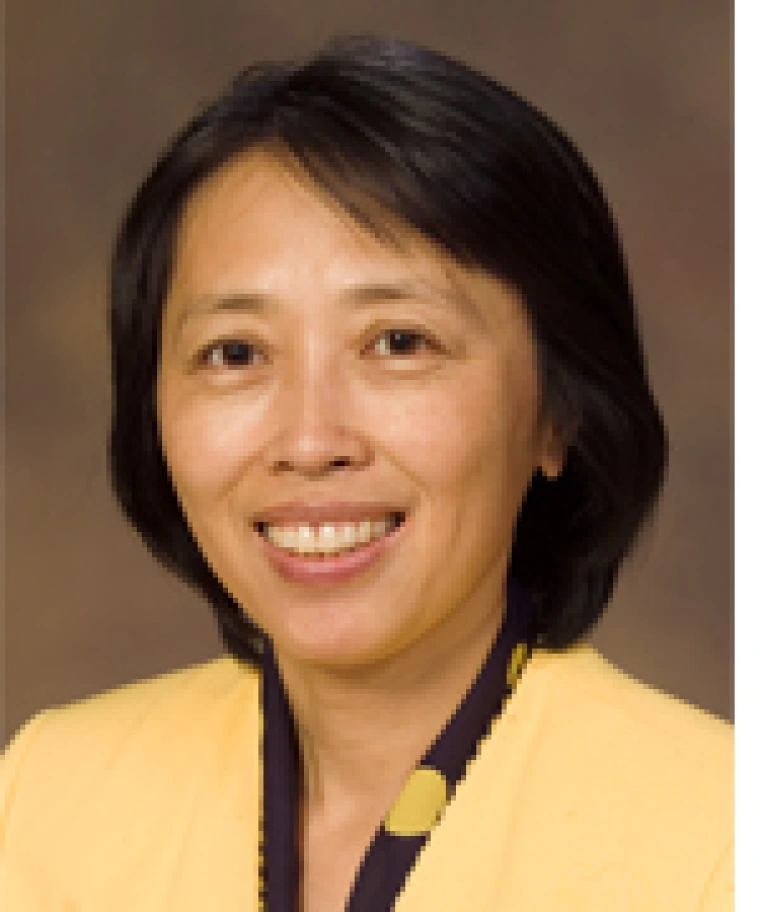Zhao Chen, PhD, MPH

Dr. Chen is a Professor of Epidemiology and Biostatistics in addition to being Program Director. She earned a bachelor's degree in Biology from Beijing Normal University, a master's degree in Physical Anthropology from Academic Sinica in Beijing, China, and a master's in Public Health Nutrition from the Mel and Enid Zuckerman College of Public Health at the University of Arizona. She went on to complete a PhD in Physical Anthropology at the University of Arizona where she also performed her postdoctoral work in Epidemiology.
Her primary interest has been focused on epidemiologic research of women's health and aging-related health conditions. She has a wealth of experience in studying body composition assessments, breast cancer risk factors, fracture risk in cancer survivors, osteoporosis prevention, epidemiology of anemia, biomarker and genetic variations for chronic diseases and sarcopenia measurements among women and the elderly from different ethnic backgrounds.
She is a member of the Arizona Cancer Center, Arizona Center on Aging, the University of Arizona Arthritis Center and Bio5. She is a funded researcher by the National Health Institute (NIH), and has served on numerous scientific study sections for the NIH and other funding agencies nationally and internationally. Dr. Chen also has an affiliated faculty appointment with the School of Anthropology.
Her work with the U.S. Women's Health Initiative study has produced several significant research papers on epidemiologic methodology and osteoporosis risk factors in diverse populations. Her findings on increased fracture risk among breast cancer survivors have caught wide public attention, thus making a significant contribution to the prevention of fractures in the large number of breast cancer survivors. Her research on mammographic density as a proxy of breast cancer risk has provided direct evidences on significant associations between body composition, dietary intake, and mammographic density. The study findings on changes in body composition and hip structural geometry with intervention and aging have contributed to osteoporosis prevention and healthy aging research. Currently, she is leading investigations on longitudinal changes in bone strength and skeletal muscle loss associated with aging and hormone and calcium/vitamin D interventions. Her research on biomarkers and genetic variations for sarcopenia is supported by the National Institute of Aging/NIH. She has also received NIH funding to study anemia and its relationship with muscle loss, physical function, and mortality in Mexican American, Africa American, Native American, Asian, and Non-Hispanic white postmenopausal women. In the recent years, she has been working with several large worldwide consortiums on genome-wide association studies for sarcopenia and anemia.
In addition to teaching, Dr. Chen has been providing research training opportunities to students especially from underserved populations. Under her direction, graduate students in her laboratory are conducting research in many aspects of women's health and aging. Some examples of the research areas include arthritis and osteoporosis in women, anemia and cardiovascular diseases, physical functional assessments in the elderly, and relationship of growth factors with breast cancer risk. With the growing elderly population in the United States, osteoporosis, sarcopenia and anemia have become more significant public health problems. In responding to the community's needs, she frequently gives community health lectures and provides opportunities of health screening and education to publics. Dr. Chen is working on building a strong research and health promotion program to contribute to healthy aging in people from all ethnic backgrounds.

